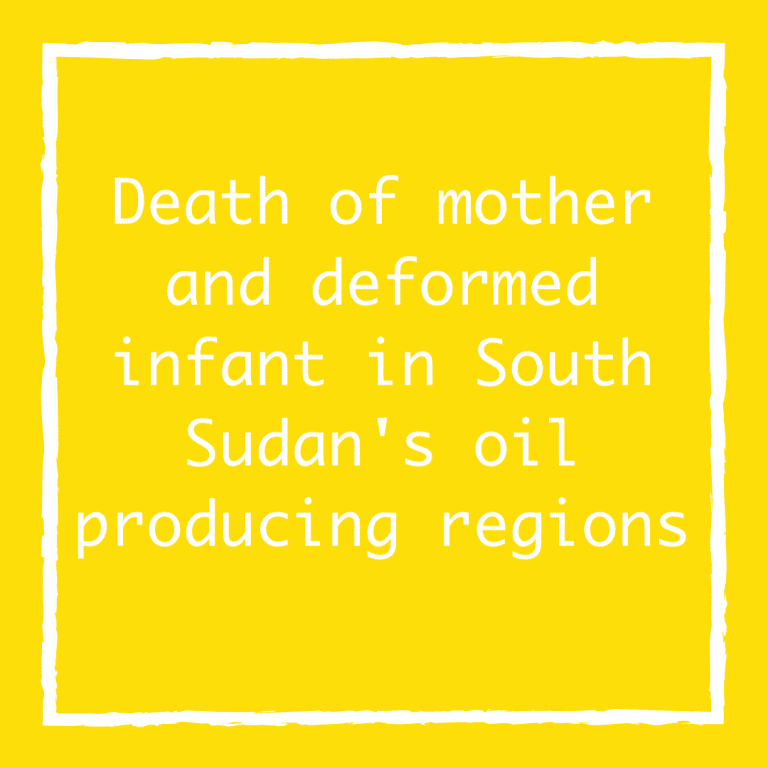In-depth report from key association of NGOs
“Brave David’s long fight for the most basic of human needs and rights”
Hero of the Environment Nnimmo Bassey
Just out: an important report.
Important because it covers – in-depth – a key subject: how NGOs – the brave Davids of this world – fare when they confront multinationals – today’s Goliaths.
Important because it is from VENRO, whose size – 120 Germany-based NGOs – and their missions – providing humanitarian and development assistance around the world – makes it a leading advocate of and reporter on best practices in these key fields.
Entitled “Uncomfortable partners – from confrontation to cooperation: NGO’S strategies for dealing with companies”, the Report presents seven case studies.
Among them: “South Sudan / Sign of Hope / Water Contamination by Petronas – Daimler’s ‘bend but don’t break ’ strategy”.
The following three pages detail Sign of Hope’s decade-long struggle to put an end to the contamination of South Sudan’s water by relentlessly greedy international oil companies. Prime among them: Petronas, which is the Malaysian-owned oil giant.
Petronas, in turn, entered into a partnership with Germany’s Daimler in Formula 1 racing and other areas.
To achieve its objectives of stopping Petronas’ pollution of water, and of getting medical care and compensation for the loss of life, health and livelihood suffered by more than 600,000 victims in South Sudan, Sign of Hope initiated what it hoped would be a constructive dialogue with Daimler, which has, after all, committed itself to adhering to the highest of ethical and environmental practices when conducting business.
As the in-depth article revealed, this strategy yielded a series of meetings with representatives of Daimler, of Petronas and of South Sudanese government. All these, in turn, produced nothing more than lofty and empty promises, convoluted explanations – and – in one very worrying case – a threat from the government.
Undeterred by the lack of progress, Sign of Hope has pursued, even stepped up its fight for clean water in South Sudan. This stepping up has taken the form of furthering the enlistment of local stakeholders and the facilitation of their self-organization in an NGO.
“There are sound reasons for our move. The South Sudanese are obviously much better informed as to what’s going on in their countries. The carrying on of the fight by a local NGO sends a powerful message to the people of the country and to the world as a whole. Sign of Hope is happy to play the role of an enabler and supporter,” states Klaus Stieglitz, human rights expert and Deputy Chairperson of Sign of Hope.


